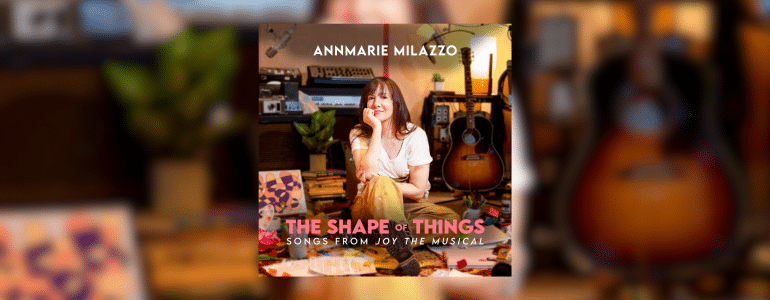Are discounts eroding our sales?
Ohhh, if I had a dollar for every time I heard this question, my shows would never have to discount ever again!
While discounting has always been used to launch new products as well as entice people to buy old products (remember when your Mom used to cut coupons?), it wasn’t until the internet exploded that discounting exploded right along with it, like an unsliced hot dog in a microwave. The days of delivering discounts by direct mail alone quickly began to disappear . . .
The airline industry was the first industry I remember trying to get rid of their perishable inventory on the internet, with their last-minute-price-slashing email blasts. And we followed suit.
Discounts to Broadway and Off-Broadway shows are now much more available than they ever were, thanks to sites like BroadwayBox, Playbill, Theatermania, BestOfOffBroadway, and so on.
So, the question is . . . “Is all this discounting doing more damage than good?”
Let’s take a look at some numbers!
Here’s what I did:
I found out when the major email blasts and discount clubs started to appear on the scene and graphed figures before and after, eight years in each direction (the first thing you’ll notice is that there is this cool discounting zeitgeist type thing that occurred right about the turn of the millennium), and differences in growth during each of those eight year periods.
Here are the figures we examined:
- Gross sales
- Number of Tickets Sold
Average ticket price
- Price of top price ticket to Phantom of the Opera (We used Phantom since it has been open the entire span of time of the data and since it seemed a pretty good archetype)
Here are the results:
GRAPH #1 – GROSS SALES

- In the years from 1992 – 2000, the total gross sales on Broadway grew 120.22%
- In the years from 2000 – 2008, the total gross sales on Broadway grew 59.69%
GRAPH #2 – NUMBER OF TICKETS SOLD

- In the years from 1992 – 2000, the total # of tickets sold on Broadway grew 54.20%
- In the years from 2000 – 2008, the total # of tickets sold on Broadway grew 7.82%
GRAPH #3 – AVERAGE PAID ADMISSION

- In the years from 1992 – 2000, the average paid admission to a Broadway show grew 33.37%
- In the years from 2000 – 2008, the average paid admission to a Broadway show grew 44.32%
GRAPH #4 – PRICE OF A FULL PRICE TICKET TO PHANTOM OF THE OPERA

- In the years from 1992 – 2000, the top full price ticket to Phantom grew 30.77%
- In the years from 2000 – 2008, the top full price ticket to Phantom grew 41.18%
- Inflation rate 1992-2000: 22.23%
- Inflation rate 2000-2008: 25.05%
Ok, so a quick recap:
- During the eight years pre-discounting zeitgeist, the growth of the total overall gross, and the # of tickets sold were much higher than post-discounting zeitgeist.
- Average paid admission seems consistent with the rise in price of the full price ticket, which also grew at a greater rate in the most previous eight year period than the earlier period.
- Our increasing ticket prices are outpacing the rate of inflation (a different blog topic would be to compare our expenses with the rate of inflation with our ticket price. 10:1 that our expenses are increasing at the higher rate).
So what do you think? Do the above graphs indicate that discounts are eroding our ticket sales?
Before we draw any conclusions, we must remember that there are other events during the past sixteen years that have impacted the above charts. Broadway, as well as the world, shifted dramatically, on Sept. 11, 2001. It just so happens
that the major discounting efforts started just prior to that date, and then even more (i.e. Seasons of Savings) were the direct result of it. And let’s not forget the dot.com boom and bust in the late 90s. Certainly that had an effect.
But back to the original questions!
Could the discount efforts have really slowed our growth? How would the industry have grown without sites like BroadwayBox, etc.? Would the growth rates have been even worse? Was the discounting necessary in today’s Walmart
society? And if discounting has slowed growth, what can we do to reverse the trend? Or is the growth slower because we are getting closer to the ceiling for the Broadway audience?
Oh the questions, the questions! One thing I know for sure is that the above charts are just a few clues in the mystery of whether or not discounts are actually eroding our sales, and we shouldn’t jump to too many conclusions in a brief blog.
I will say this . . . it’s obvious to me that discounts haven’t helped.
But I’ll also say . . . I don’t think we had a choice.
In today’s society, thanks to the internet, it’s much easier to competitive shop. And that has made a lot of us feel more entitled to a discount (my nose would be growing if I didn’t admit that I google Staples Coupon or Avis Coupon before buying paper or renting a car). Also, those discount sites are opportunities for shows to get free media. Cut your price, they’ll put you up on the site. What’s better for shows with limited budgets . . . paying to buy space to sell a full price ticket or getting free space and selling a lesser priced ticket? Either way there is a cost, but one is much less risky (this is just one of the reasons why Off-Broadway shows full price buyers are only 25% of the audience as opposed to 50% of Broadway shows).
Consumers changed their behaviors. And now, to get back to those past growth rates, we’re going to have to do the same, because we’re not discounting properly yet.
What’s next for us to tackle? Yield Management. Just like we learned from the airlines in sending emails for perishable inventory, it’s time to tackle different prices for different weeks of the year, different days of the week, etc., depending on supply and demand.
Here’s a bonus graph for you. It’s the Dow during the same sixteen year period.

- In the years from 1992 – 2000, the DJIA grew 210.06%
- In the years from 2000-2008, the DJIA grew 20.08%
I left off what happened in the year following January 1, 2008, because, well, we all know what happened then . . .
Special thanks to all my friends across the industry who helped with the research for this blog, including The Swami, Laura, Hugh, Darren, Jennifer, Karen (one of my assistants) and The League.
Podcasting
Ken created one of the first Broadway podcasts, recording over 250 episodes over 7 years. It features interviews with A-listers in the theater about how they “made it”, including 2 Pulitzer Prize Winners, 7 Academy Award Winners and 76 Tony Award winners. Notable guests include Pasek & Paul, Kenny Leon, Lynn Ahrens and more.

















